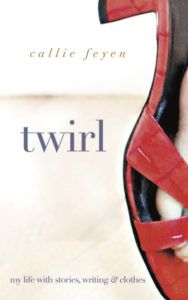We are in a noisy classroom, a first-grader I’ll call Cornelia and I. The class is bustling in from lunch and recess, and snow pants swish as students clomp around, pulling out books or iPads or crayons and paper for a few minutes of quiet time. Cornelia sees me, but she doesn’t give her usual smile. She lowers her head, crosses her arms, stomps a snow boot, and says, “NO. I don’t want to work with you.”
I place my materials on the table where we work. I walk over to where Cornelia is and crouch to her eye level. Cornelia’s classmate, who’s settled in with a stack of Clifford books and a giant bean bag chair, tells me, “She’s having a bad day.” He’s flipping through Clifford Takes a Trip. “A real bad day,” he says, shaking his head.
Then, as if he’s been shocked, he sits up, lays the Clifford book down and gives me the side-eye. “Those shoes,” he says, shaking his head at me. “Not today.” He picks up Clifford Takes a Trip and lays back down on the bean bag chair, crossing his snow boots. They leave a dribble of slush on the floor.
Cornelia and I look at my shoes, a pair of high heels. It’s the first time I’ve worn heels to this job. I am a Title I reading tutor, and the boy is probably correct: These shoes are all wrong for this work.
“I like your shoes,” Cornelia whispers, but her arms are still crossed and she’s frowning.
“Thank you,” I whisper back and shift to my knees. It is not easy to stay crouched in heels.
“I am having a bad day,” Cornelia begins. “I was supposed to sing at the Martin Luther King Jr. concert but I got nervous and forgot the words, and my pencil broke, and there was no chocolate milk in my lunch, and what I really wanna do is just hold your hand.”
I stand and hold out my hand. Cornelia takes it and we walk to the table where we work. She does not let go of it when she sits or when she reads.
She reads a poem about a boy who takes note of his day using each of his five senses. Cornelia reads well. She’s expressive and fluent. I don’t think she and I will work together much longer. I give her hand a little squeeze and say, “Good job! Now how about you write your own five senses poem.”
I let go of her hand to open the pencil case and slide it her way. I have pencils, but I’ve also brought colored pens for fun. At first students react to them with equal parts delight and nervousness. “What happens when I make a mistake?” they ask, reaching for a pen but not touching it. I shrug my shoulders, lift the pen and offer it to them. “Then cross it out,” I say. They take the pen.
I figure if we’re going to make mistakes, we may as well make colorful ones.
Cornelia picks a pink pen, and I slide the worksheet with prompts toward her: “I see, I hear, I touch” and so on. I read to her, and she begins.
Sitting with students as they read and write feels like walking on ice with high heels. I don’t feel prepared when something goes wrong, but here we are, Cornelia and I, past the shallow end, navigating deeper water. As she writes, I uncross my legs and don’t stomp my feet on the ground, but I do make enough noise so my heels click on the tile, just like I used to when my mom let me wear my black patent leather shoes to school. I’d run an errand for a teacher and try to walk so that my feet sounded just like a teacher’s or a principal’s feet. I would walk by classrooms’ open doors to see students look up at the sound, believing someone important was on her way. I straightened my posture, held my head up high, and widened my stride. Someone important was on her way.
The boy reading the Clifford books is wrong. My shoes are perfect for today.
“I can’t think of anything for smell,” Cornelia tells me, and her lips are trembling. The ice has cracked; her bad day is returning.
“Well,” I say, leaning against my chair so it tips slightly. “I guess we better breathe in.”
Cornelia takes a deep breath and looks around. She takes another and looks at me. She takes another then slams both hands on the table. “I got it!” she says and stands up. She walks to a bucket of markers, lifts a red one, pulls the cap off, and raises it to me as if in a toast. She closes her eyes, puts the marker to her nose, and sniffs. “Ahhhh,” she exclaims, and slams the marker in the bucket.
She walks back to the table, sits down, picks up her pink pen, and points to me. “I smell a red marker,” she declares, triumphant and with a small red dot on her nose from smelling the marker.
I smile. Not only did Cornelia have the perseverance and belief in herself to struggle through, but she got so close to it, she was marked by it.
Try It
There are a couple different prompts we could pursue this week in our writing. We could write a five senses poem. If we wanted to up the stakes, we could go somewhere where the ice is thin — that is, where writing isn’t ideal. What poetry can you find in the carpool line, in middle-of-the-night feedings, on the drive to work, in a meeting where you think perhaps you’re wearing the wrong shoes?
This week consider giving yourself to experiences so much that you are marked by them. Pay attention, as Mary Oliver once wrote in her poem “Sometimes,” and then tell about it.
Featured Poem
Thanks to everyone who participated in last week’s poetry prompt. Here’s one from Megan Willome we enjoyed:
Trying All Week to Book a Reservation
We are not meant for Utopia
you and I. We know
better.
No grove of maples lost
beside the Sabinal: palm trees.
No rare bird: seagulls so common
along the coast. So come,
go where we’ve gone
before. Settle in, settle
down to business
Photo by benmacaskill Creative Commons, via Flickr. Post by Callie Feyen.
Browse more poetry prompts
A Writer’s Dream Book
“Callie Feyen has such a knack for telling personal stories that transcend her own life. In my years in publishing, I’ve seen how hard that is—but she makes it seem effortless, and her book is such a pleasure. It’s funny, it’s warm, it’s enlightening. Callie writes about two of the most important things in life—books and clothes—in utterly delightful and truly moving ways. I’m impressed by how non-gimmicky and fresh her writing is. I love this book.”
- Poetry Prompt: Courage to Follow - July 24, 2023
- Poetry Prompt: Being a Pilgrim and a Martha Stewart Homemaker - July 10, 2023
- Poetry Prompt: Monarch Butterfly’s Wildflower - June 19, 2023


Katie says
Callie,
INDEED, “Someone important was on her way.” AND I say, “Her shoes are perfect for ANY day;)
Bravo!
Katie
Richard Maxson says
A Reprieve
Each morning
I cross
this parking lot
worn white lines
that fail
to keep each car
in its place
the end cars
forced to park closely
there are willows
in the esplanades spilling
their wet branches on the grass
the air is thick
and voluptuous
I breathe with intent
night brought rain
now fragrances
tarmac and honeysuckle
come to me unexpectedly
a taste sweet and earthy
as I walk to birdsong
doves and cardinals
seem to harmonize
from different worlds
in the gray sky
a fragment
of rainbow
stark and pure
alone and piercing
the abating clouds
in the office door I pause
looking back at the arc
nearly full and descending
Bethany R. says
Hard to choose a favorite stanza in this poem. Thanks for sharing this, Richard.
I enjoyed this thoughtful post, Callie, you bring me right into your scene. (And I was JUST looking for something about sensory language. 🙂
Will Willingham says
I just want to say thank you for holding Cornelia’s hand. 🙂